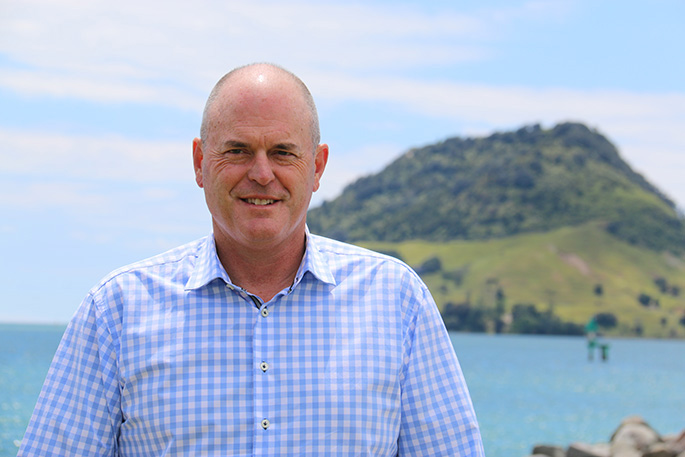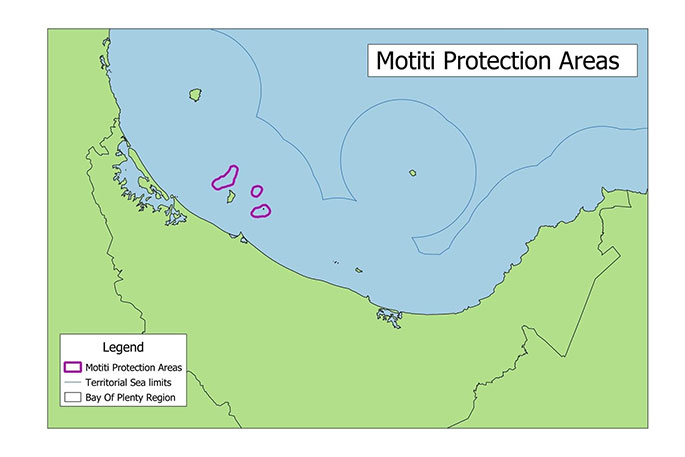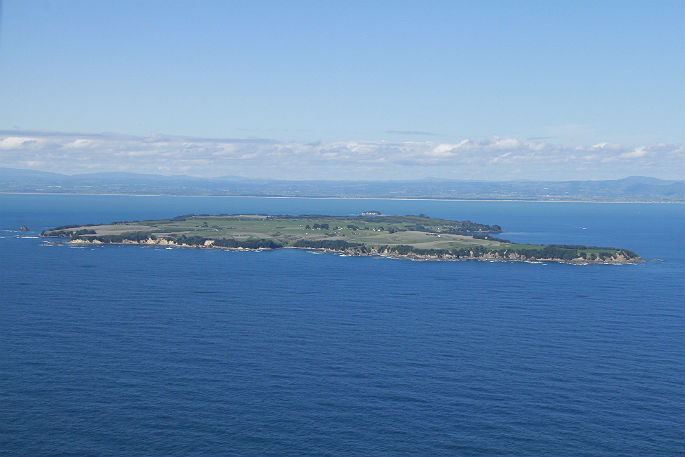A Bay of Plenty MP says the recent Environment Court decision about the Motiti marine reserve sets a precedent about who manages fish takes in New Zealand.
Todd Muller says the Ministry of Primary Industries is the appropriate body to decide whether an area has constraint on a fishery rather than a regional council, which is what the Environment Court has ruled.
The decision has directed the Bay of Plenty Regional Council to implement new rules in its Regional Coastal Environment Plan to protect three reef systems near Motiti Island and complete scientific monitoring to inform future integrated marine management solutions.
This means the taking of fish will be prohibited around three specific reef systems near Motiti Island.
The rules will apply to everyone, including customary, recreational and commercial fishers.
Todd says it sets a precedent because now anyone who has a different view from MPI about fish takes and sustainability of the fish biomass in any area in New Zealand, can have recourse with the council about their obligations to protect an area.
'The idea which this particular court case has tested and proved according to the Environment Court is that actually it should be the purview of the regional council, I think is wrong.
'I think we need to reflect on what we need to do to change the law to make sure that it is back with the Ministry of Fisheries (MPI).”
 Bay of Plenty MP Todd Muller. File image/SunLive.
Bay of Plenty MP Todd Muller. File image/SunLive.
He has started a petition requesting the Government change the law to stop the fishing ban being applied to the reefs around Motiti Island and that the accountability for managing fishing stocks be returned to the Ministry of Fisheries (MPI).
He also wants there to be wider consultation with recreational fishers, iwi, Motiti whanau and the wider Bay of Plenty community in future.
'In my opinion, there was very little to no opportunity for the average local Bay of Plenty resident to participate in the process as they would normally do if a regional council was proposing to widen their brief or mandate.”
Because the changes have been directed by the Environment Court the normal process of a council proposing changes in their plan then giving time for community consultation has not occurred.
'The average recreational fisher never got an opportunity to participate into what has become now a firm ruling that there should be a no take zone in those three reefs and I just think that's poor process.”
BOPRC regulatory services general manager Sarah Omundsen says the Motiti Protection Area was proposed by the Environment Court in response to an appeal by the Mōtiti Rohe Moana Trust rather than being proposed by the regional council and being consulted on with the community.
'Due to the unique way this decision has come about, and the complex nature of the court cases, parties would have had to join the appeal process to get involved in the court proceedings.
'We do understand that both court processes are unfamiliar for the general public, particularly in terms of marine protection areas and prohibiting fishing activities.
 A map showing the protection areas around Motiti. Image: Forest and Bird Facebook.
A map showing the protection areas around Motiti. Image: Forest and Bird Facebook.
'As a regional council, this is new territory for us to implement and we appreciate some people's frustration.
'Moving forward we are looking at ways of making sure people are kept informed of progress on the Motiti Protection Area.”
Regional council is now preparing minor amendments as directed by the court including addressing how to appropriately monitor and enforce the areas, says Sarah.
Once these are confirmed by the court the plan will be updated and then sent to the Minister of Conservation for approval which is a requirement for coastal plans, she says.
When this has been approved the public will be notified of the changes and the rules will become operative and enforceable and it is expected to take a number of months before the rules are implemented, says Sarah.
Funding for the enforcement will come from the regional council's Annual Plan and existing Long Term Plan budgets, she says.
'We are looking into how we can be most efficient and effective with our resources, particularly in light of the COVID-19 situation.
'This involves determining how we can collaborate with the Ministry of Primary Industries, Department of Conservation and Department of Internal Affairs.”
The next formal review of the Regional Coastal Environment Plan is planned for 2029, which is the standard plan and review cycle, says Sarah.
When the plan is up for review there will be public consultation and an opportunity for people to provide feedback on the protection areas.
The three Motiti Protection Areas include: Motiti Protection Area 1 Coastal Marine Area Otaiti (Astrolabe Reef), Te Porotiti, o Karapu and Te Papa (also known as Brewis Shoals), Motiti Protection Area 2 Coastal marine area around Motunau (also known as Plate Island), Motiti Protection Area 3 Coastal marine area around Motuhaku (also known as Schooner Rocks or Schooner Island).
More information on the protection areas can be found here.



3 comments
1 country
Posted on 20-05-2020 07:47 | By Angels
1 country, 1 people, same rules for all Playing games and favourites is asking for disaster
All-Most Fished Out.
Posted on 20-05-2020 11:21 | By Frostbite
MPI has not done a very good job of managing the east coast fishery. Stock down to about 6%. So taking charge and thinking about fish stocks for the future. This model may well prove that there are other ways of repairing the damage from over fishing in the bay. We all want to be able to catch a fish. But we cannot keep thrashing this resource.
Fair go.
Posted on 21-05-2020 14:12 | By morepork
Whether it is decided to have NO fishing for a while or allow SOME fishing, the important thing is that it must be ONE rule for EVERYBODY. I agree 100% with Angels.
Leave a Comment
You must be logged in to make a comment.